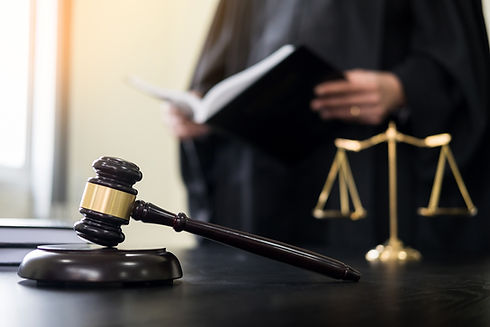
Admissibility of Expert Evidence
Case Study:
Dasreef Pty Ltd v Hawchar (2011) 243 CLR 588
In the case of Dasreef Pty Ltd v Hawchar, the High Court was asked to review the admissibility of evidence given at trial by Dr. Kenneth Basden in the Dust Diseases Tribunal of New South Wales. Dr. Basden, a chartered professional engineer and chemist, and a retired senior lecturer at the University of New South Wales, provided his expertise in the context of a personal injury claim brought by Mr. Hawchar against Dasreef.
Mr. Hawchar alleged that while working as a laborer for Dasreef, he was exposed to unsafe levels of silica dust which resulted in him contracting scleroderma and silicosis. He claimed negligence, breach of statutory duty, and breach of contract on the part of Dasreef. The tribunal found 20 out of 23 parts responsible for Mr. Hawchar's silicosis.
The accuracy of this apportionment was brought into question and presented to the High Court for review. This issue stemmed from expert evidence provided by Dr. Basden regarding the numerical level of respirable silica dust in Mr. Hawchar's breathing zone.
However, the High Court concluded that Dr. Basden's evidence was not admissible to establish Mr. Hawchar's exposure to silica dust levels exceeding the maximum permissible limit. The court determined that his opinion was not wholly or substantially based on specialized knowledge gained through his training, study, or experience.
It was found that Dr. Basden did not attempt to offer a calculation of the levels of respirable silica dust to which Mr. Hawchar was exposed while working for Dasreef. Instead, he provided a "ballpark" figure estimating the amount of respirable silica dust if an operator was using an angle grinder in a specific manner.
Furthermore, Dr. Basden's written report showed that he had only witnessed the use of an angle grinder in this manner once before and did not have any direct measurements or calculations to support his estimate.
In conclusion, the High Court deemed Dr. Basden's evidence inadmissible as it lacked a solid foundation to be considered specialized knowledge based on training, study, or experience. This led to the overturning of the calculation made by the trial judge regarding Mr. Hawchar's exposure to respirable dust levels.
This case serves as a reminder that expert evidence must be based on sound, specialized knowledge and cannot simply rely on assumptions or estimations. It highlights the importance of thorough research and proper documentation when providing expert opinions in legal proceedings. So, it is essential to have a trustworthy and intellectual tone when presenting expert evidence in court cases. By doing so, the credibility and reliability of the evidence will be enhanced, ultimately leading to fair and just outcomes in legal proceedings. The High Court's decision also emphasizes the need for continuous education and training for experts in their respective fields to ensure that their opinions are based on current, specialized knowledge. In the pursuit of justice, it is crucial to have experts who are knowledgeable, trustworthy, and constantly striving to improve their understanding of their field of expertise. With this in mind, our legal system can continue to uphold fairness and accuracy in its judgments.
The Dasreef Pty Ltd v Hawchar case serves as an example of the importance of expert evidence in legal proceedings and the need for it to be based on specialized knowledge. The High Court's decision highlights the importance of credibility, reliability, and continuous learning in providing expert opinions. As we continue to navigate complex legal cases, let us remember the crucial role that experts play in upholding justice and strive to constantly improve our standards in providing expert evidence.
